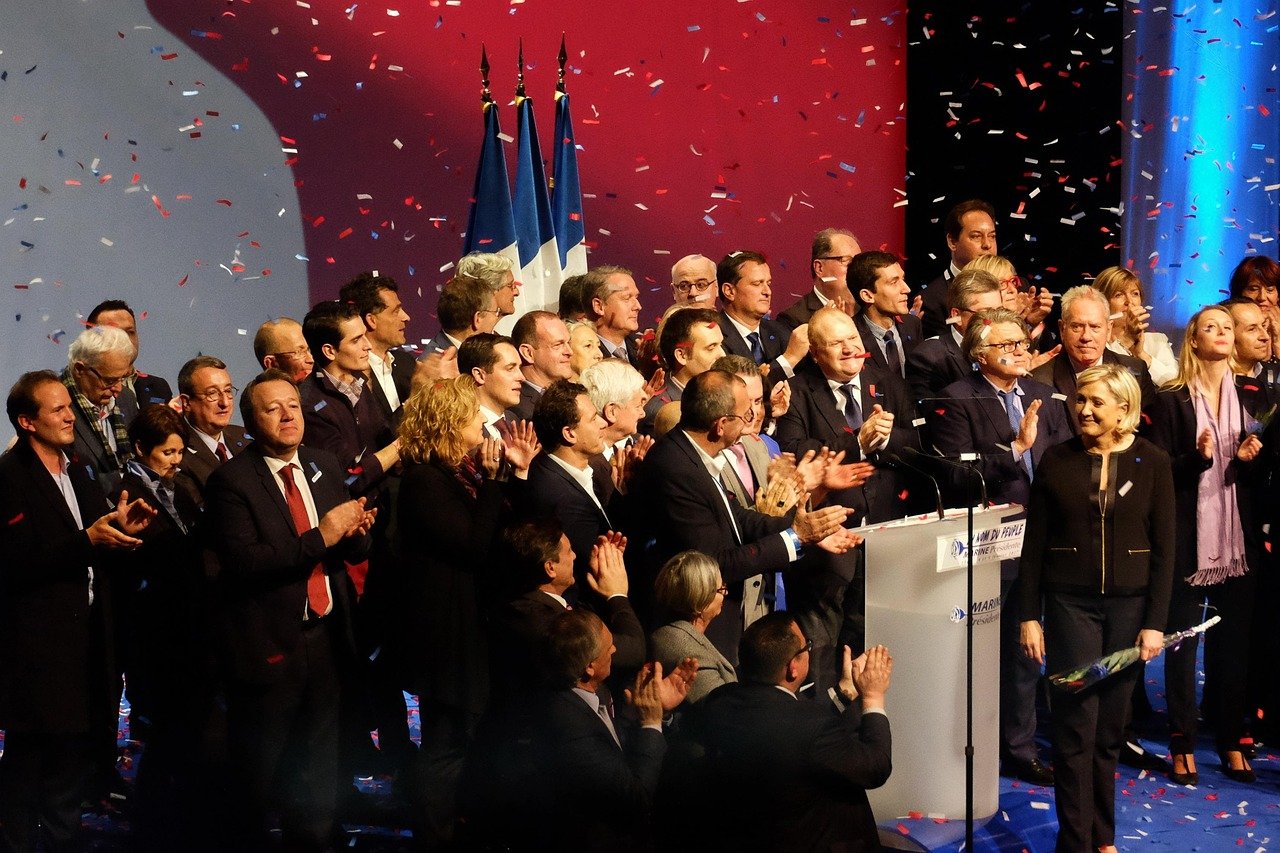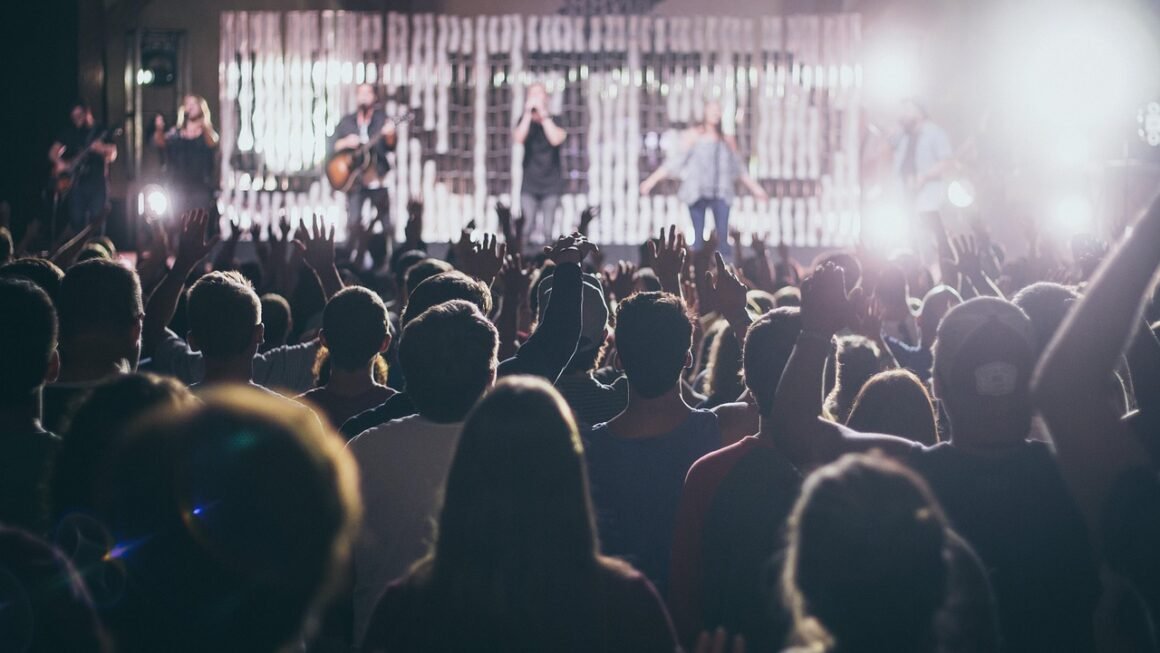Political debates and debate nights are a cornerstone of democratic societies. They offer a platform for candidates to articulate their visions, challenge opponents’ ideas, and ultimately, inform voters. By understanding the purpose, structure, and impact of these debates, citizens can become more engaged and informed participants in the electoral process. This guide provides a comprehensive overview of political debates, helping you navigate the complexities of this crucial aspect of political life.
The Purpose of Political Debates
Informing Voters and Shaping Public Opinion
Political debates serve as vital opportunities for candidates to directly address voters, explaining their policy positions and answering crucial questions. A well-executed debate can significantly influence public opinion and sway undecided voters.
- Clarifying Policy Stances: Debates offer a structured environment for candidates to articulate their platforms on key issues like healthcare, economy, and foreign policy. For example, during a presidential debate, candidates might outline their strategies for job creation, offering concrete plans and projections.
- Highlighting Differences: The format allows for a clear comparison of candidates’ views, showcasing where they agree, disagree, and how their approaches to governing differ.
- Building Trust and Credibility: A candidate’s performance in a debate can significantly impact their perceived trustworthiness and competence. Calmness under pressure, well-reasoned arguments, and respectful engagement can build voter confidence.
Holding Candidates Accountable
Debates provide a critical space for holding candidates accountable for their past actions, statements, and policy proposals.
- Fact-Checking Opportunities: Opponents and moderators often scrutinize candidates’ claims, forcing them to provide evidence or defend their positions. This creates an environment where factual accuracy is paramount (or at least, should be).
- Addressing Controversies: Debates require candidates to confront potentially damaging information or past controversies head-on, offering them a chance to explain or apologize.
- Questioning Qualifications: Debates can be used to assess a candidate’s knowledge, experience, and overall suitability for office. Opponents may highlight weaknesses in a candidate’s resume or challenge their record on specific issues.
Encouraging Civic Engagement
Political debates can stimulate public interest in elections and encourage citizens to become more informed and engaged in the political process.
- Increased Voter Turnout: High-profile debates often generate significant media coverage and public discussion, driving voter registration and turnout.
- Promoting Political Discourse: Debates can spark conversations within communities and families, encouraging people to discuss important issues and consider different perspectives.
- Educating the Public: Debates can serve as educational tools, providing valuable insights into complex policy issues and helping voters understand the implications of different political choices.
Anatomy of a Political Debate
Format and Structure
Political debates typically follow a structured format, with specific time limits for opening statements, questions, rebuttals, and closing statements.
- Opening Statements: Candidates introduce themselves and outline their key policy priorities.
- Questions and Answers: Moderators pose questions on pre-selected topics, and candidates respond within allotted timeframes.
- Rebuttals: Candidates are given opportunities to respond to each other’s statements and challenge their arguments.
- Closing Statements: Candidates summarize their key points and make a final appeal to voters.
The Role of the Moderator
The moderator plays a crucial role in ensuring a fair and informative debate. Their responsibilities include:
- Selecting Questions: Choosing questions that are relevant, timely, and address key issues of concern to voters.
- Enforcing Rules: Ensuring that candidates adhere to the time limits and debate format.
- Maintaining Neutrality: Remaining impartial and avoiding any bias in the selection of questions or the enforcement of rules.
- Promoting Civil Discourse: Encouraging respectful dialogue and preventing personal attacks or inflammatory rhetoric.
Key Players Beyond the Candidates
- Campaign Staff: Work behind the scenes to prepare candidates for the debate, conduct research, and craft messaging.
- Debate Commission: Organizes and oversees the debate, selects the moderator, and establishes the rules and format. In the US, the Commission on Presidential Debates is a prominent example.
- Media Outlets: Broadcast the debate and provide commentary and analysis, shaping public perception.
Preparing for and Watching a Debate
What Candidates Do to Prepare
Debate preparation is an intensive process involving extensive research, practice, and strategic planning.
- Policy Research: Candidates thoroughly research the issues to be debated, developing detailed policy positions and anticipating potential challenges.
- Mock Debates: Candidates participate in mock debates with advisors playing the role of the moderator and opposing candidates.
- Message Development: Candidates craft concise and memorable sound bites to communicate their key messages.
- Speech Coaching: Coaches assist candidates in refining their speaking style, body language, and overall presentation.
Tips for Voters: How to Watch Critically
Watching a political debate critically requires careful attention and a willingness to evaluate candidates’ statements and arguments.
- Focus on Substance: Evaluate candidates’ policy proposals and their reasoning behind them, rather than simply reacting to their personalities or speaking styles.
- Fact-Check Claims: Verify the accuracy of candidates’ statements by consulting reputable sources and fact-checking websites.
- Consider the Source: Be aware of the potential biases of media outlets and commentators when analyzing the debate.
- Compare and Contrast: Identify the key differences between candidates’ positions and assess the potential implications of each approach.
- Don’t Be Afraid to Change Your Mind: Be open to considering new information and perspectives, and be willing to re-evaluate your views.
Evaluating Debate Performance
- Command of Facts: Did the candidate demonstrate a solid understanding of the issues?
- Clarity of Communication: Was the candidate able to articulate their views clearly and persuasively?
- Composure Under Pressure: Did the candidate remain calm and collected when challenged?
- Responsiveness to Questions: Did the candidate directly answer the questions asked by the moderator?
- Respectful Engagement: Did the candidate engage with opponents respectfully and avoid personal attacks?
The Impact of Political Debates on Elections
Swaying Undecided Voters
Debates can be particularly influential in persuading undecided voters, who may be using the debate as an opportunity to learn more about the candidates and their positions.
- Providing Information: Debates offer a condensed source of information for undecided voters to quickly compare candidates on key issues.
- Revealing Personality: The unscripted nature of debates can reveal aspects of a candidate’s personality and temperament that might not be evident in other campaign appearances.
- Building Rapport: A strong performance in a debate can help a candidate connect with voters on a personal level, building trust and rapport.
Shaping Media Coverage
Debates often dominate media coverage in the weeks leading up to an election, influencing the narrative and shaping public perception of the candidates.
- Highlighting Key Moments: Media outlets often focus on specific moments from the debate, such as memorable exchanges or gaffes, which can have a significant impact on public opinion.
- Providing Analysis: Pundits and experts offer commentary and analysis on the debate, shaping the public’s understanding of the candidates’ performances and the issues at stake.
- Setting the Agenda: The topics discussed in the debate often become the focus of subsequent media coverage and political discussion.
The Role of Social Media
Social media has become an increasingly important platform for discussing and reacting to political debates.
- Real-Time Commentary: Social media users can share their thoughts and opinions on the debate in real-time, creating a dynamic and interactive experience.
- Fact-Checking and Misinformation: Social media can be used to quickly fact-check candidates’ claims, but it can also be a source of misinformation and propaganda.
- Amplifying Voices: Social media can amplify the voices of marginalized communities and allow them to share their perspectives on the debate.
Common Criticisms of Political Debates
Sound Bites Over Substance
Critics argue that the emphasis on sound bites and quick responses often sacrifices substantive discussion of complex issues.
- Limited Time: The time constraints imposed on candidates limit their ability to fully explain their policy positions.
- Focus on Memorable Moments: Candidates are often incentivized to prioritize creating memorable moments over engaging in thoughtful dialogue.
- Superficial Engagement: The debate format can encourage superficial engagement with complex issues, rather than in-depth analysis.
The “Gotcha” Moments
The pursuit of “gotcha” moments – embarrassing or damaging revelations – can overshadow meaningful policy discussions.
- Emphasis on Opposition Research: Candidates may prioritize uncovering damaging information about their opponents over articulating their own vision.
- Distracting from Substance: The focus on personal attacks and controversies can distract from the discussion of important policy issues.
- Discouraging Civil Discourse: The pursuit of “gotcha” moments can create a hostile and unproductive debate environment.
Limited Access and Representation
Critics argue that the debate format often excludes independent and third-party candidates, limiting the diversity of perspectives.
- Arbitrary Thresholds: Debate organizers often impose arbitrary thresholds for participation, such as minimum levels of support in opinion polls, which can exclude viable candidates.
- Media Bias: Media outlets may be less likely to cover independent and third-party candidates, making it difficult for them to gain the visibility needed to qualify for debates.
- Lack of Diversity: The lack of representation of diverse voices in debates can limit the range of perspectives considered.
Conclusion
Political debates are a vital, albeit imperfect, component of democratic elections. By understanding their purpose, structure, and limitations, voters can become more informed participants in the political process. Critical engagement with debates, including thoughtful evaluation of candidates’ statements and fact-checking of their claims, can empower citizens to make well-informed decisions at the ballot box. While debates may not always provide a perfect reflection of candidates’ capabilities or a comprehensive overview of policy issues, they remain a crucial platform for holding candidates accountable and informing the electorate.




